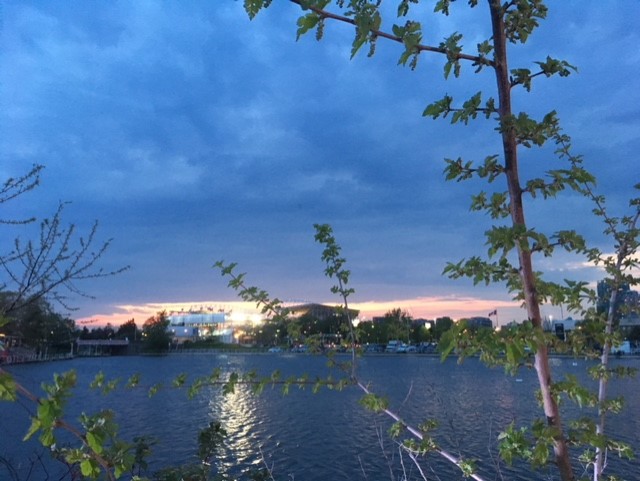I lost my dad this summer.
He had been living with dementia for more than 12 years, and though he struggled every day of those years, none were more painful or difficult than the last week of his life. His brain had forgotten how to swallow.
As he slowly left us, my mom and I did everything we could to ensure he was never alone. I would sleep with my hand on his chest so I could feel his heart beating – or not. The morning that we both decided to leave to have showers and take a break was the morning he died. As word of his death spread, the hallway to his room filled with some of the families we had gotten to know over the years, offering their condolences and prayers.
After the memorial service, I ran into Brian, a neighbour who had recently lost his wife to Alzheimer’s disease. He talked about how hard the ‘after’ was. Now he had an extra hour in the morning because he wasn’t feeding her breakfast. He no longer planned his workday around hospital visits. And the regular Sunday morning wheelchair stroll across the street so she could feel the sun on her face and drink her favourite coffee, well, that stopped too.
But there was one thing that stayed the same. That day, like every Wednesday for the last eight years, he headed to a caregivers’ support group meeting. Even though his wife was gone, the group gave him comfort. Many had become close friends, and he felt that by sharing his experiences he could help others.
What he said next got me thinking about the value of shared experiences and how, when your life is profoundly affected by something like a serious illness, if you are lucky, you are able to find a community that provides solace and guidance. This community is always a part of you.
“I never thought I would still want to go to these meetings,” he said. “But over the years, people would just stop coming once their partner passed away and I always wondered how they were doing. How did it turn out? I want everyone to know that it was rough, but I made it through. I’m still standing.”
And there it was.
We often think of the value of finding community and shared experiences in the context of a ‘beginning’ and a ‘during’ of something. With CML, the need for social connection is usually strongest in the early days as we struggle to understand the disease, manage side effects and come to terms with a life that now includes cancer. As time passes, there may be a need to reconnect over a medication change or a new health issue. But generally, once things settle, the need for community fades into the background.
The truth is that the ‘after’ is the anchor of peer communities. The people who have built and rebuilt lives after CML are the ones who keep the rest of us going. They’re the reason we have hope.
As we get ready to mark World CML Day on September 22nd, take a moment to think about where you are in your CML journey. Are you still buried in those dark days that come after diagnosis, the ones that have the power to overwhelm you with uncertainty and fear? Or has it been a few years for you? Maybe the upheaval has settled and most days CML doesn’t ever cross your mind. Are you facing a transplant, or maybe adjusting to life as a transplant survivor?
Wherever you are in your journey, know that your experience matters so much – perhaps mostly in the ‘after.’ So come to a meeting or two, send an email, post on Facebook. Let us know how you are.
I have not yet been back to the long-term care home where my dad spent his final days. I know how difficult it will be to see the nurses who helped us when we needed it most, and I know the memories will be too much. But I will go someday soon, despite all of this, to let the other families know that it was rough, but I made it through. To let them know that I’m still standing. As they will too.
This story also appeared on cml-iq.com
